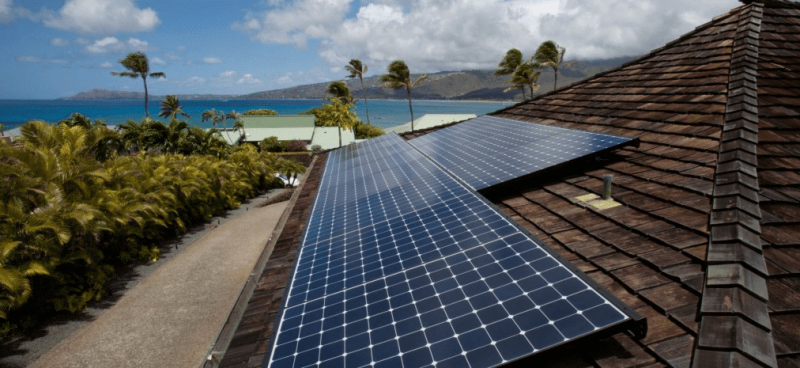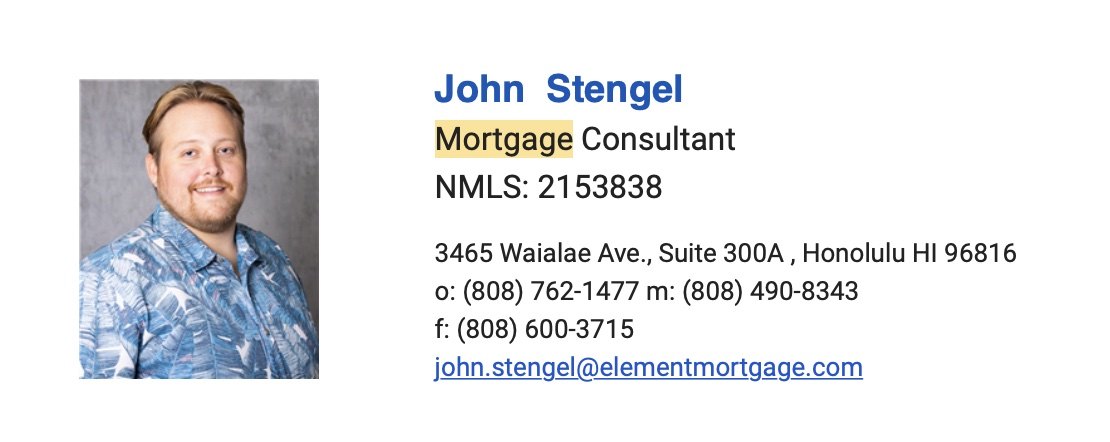Mortgage Meets Solar: Buying a Solar-Powered Home With Confidence
Hawaii is renowned for its abundant sunshine, but also a lesser-known distinction: it boasts the nation’s highest electricity costs. Naturally, this makes solar power a preferred choice among homeowners across the state. After all, why not transform all that sunlight into savings on your electricity bill? Be that as it may, prior to purchasing a home with existing solar panels it is crucial to understand how they are treated in a real estate transaction and the financial obligations they entail after closing.
If you’re thinking of making an offer on a solar-equipped home or have already done so, the first step should be to request the solar contract from the current owner and inquire about any warranties covering malfunctions or defects. The solar contract will clarify whether the panels are leased, financed, owned outright, or part of a power purchase agreement.
- Leased systems: Homeowners do not own these panels; rather they are leased from the solar company in exchange for a monthly fee.
- Loaned systems: Homeowners have not purchased the panels outright. The panels are financed, and the loan is gradually paid off in monthly installments.
- Owned systems: Homeowners have directly purchased or paid off their solar panels, enjoying full control and reaping all the benefits without monthly payments.
- Power Purchase Agreements (PPAs): Homeowners are strictly paying the solar provider for the energy they use at a fixed rate, usually lower than the local utility’s retail energy rate.
Leased and loaned solar panel systems introduce their own unique set of considerations. Solar providers typically impose a lien on the property until the solar panel system’s cost is fully settled. When buying a home equipped with such a system, it is essential to communicate this to both your loan officer and escrow company to manage the transfer of the solar lien. This lien must be resolved – either paid off or transferred – before the home’s title can be transferred to the new owner.

Leased Solar Panel Systems
When purchasing a home with leased solar panels, buyers should note a few key details. A solar lease, usually spanning 20 to 25 years, transfers with the property. To assume this lease, the new owner must qualify for the lease through the solar company. In the case that the lease is not assumable, the seller will need to pay off the lease contract. Monthly lease payments, which can be found in the solar contract, typically range between $50 and $250 per month and depend on factors such as energy usage, location, and installation company.
Importantly, for mortgage considerations, these payments will factor into your debt-to-income ratio and may affect your ability to qualify for a mortgage. If your debt-to-income ratio for the subject home is approaching the maximum value, it is important to reach out to a loan officer to be sure they factor these payments into the equation.
Note: Since leased panels are owned by a third-party, they will not be counted towards the home’s assessed market value during the appraisal.
Loaned Solar Panel Systems
Much like with leased systems, new property owners must meet the criteria to assume the solar loan. This entails the buyer completing a credit assessment by the solar company, which often takes several days. Therefore, it is recommended to start the application with the solar company as soon as your home offer is accepted to avoid any delays in closing.
As with solar leases, remember that the monthly solar loan payment influences your debt-to-income ratio during the mortgage qualification. Be sure to send your loan officer any documentation you receive from the solar company so they can obtain early approval for your home loan and a guaranteed smooth transaction.

Power Purchase Agreements
Power Purchase Agreements (PPAs) are a popular alternative to traditional solar financing. A PPA is essentially a financial arrangement where the solar company installs a solar energy system on a property, usually at little to no cost. The solar company then sells the power generated to the customer at a fixed rate, typically lower than the local utility company’s retail rate. With a PPA, you pay the solar provider for the energy you use. However, you miss out on ownership perks like tax rebates or selling energy credits to the local utility company.
Mortgage lenders don’t factor PPA payments into your debt-to-income ratio if there’s a fixed payment plan for the energy premium and a production guarantee compensating you if the solar panels don’t meet their expected energy output. Lastly, since the solar company owns the energy system, the solar panel system’s value will not be included in the appraisal value of the property.
All Things Considered
Navigating the world of homes with solar panels can feel like a maze, but it doesn’t have to be. If you’re thinking about purchasing a solar-equipped home or just have questions about the financial side of things, we’ve got your back. Our team is here to chat, break strategies down, and make sure you are set up for success with your home purchase.
To receive a list of 19 essential questions to ask when buying a solar powered home, email John with the subject title “Solar Questionnaire.”
You can reach out to me, John Stengel, directly by phone at (808) 490-8343, by email at john.stengel@
With Aloha,



Leave your opinion here. Please be nice. Your Email address will be kept private, this form is secure and we never spam you.